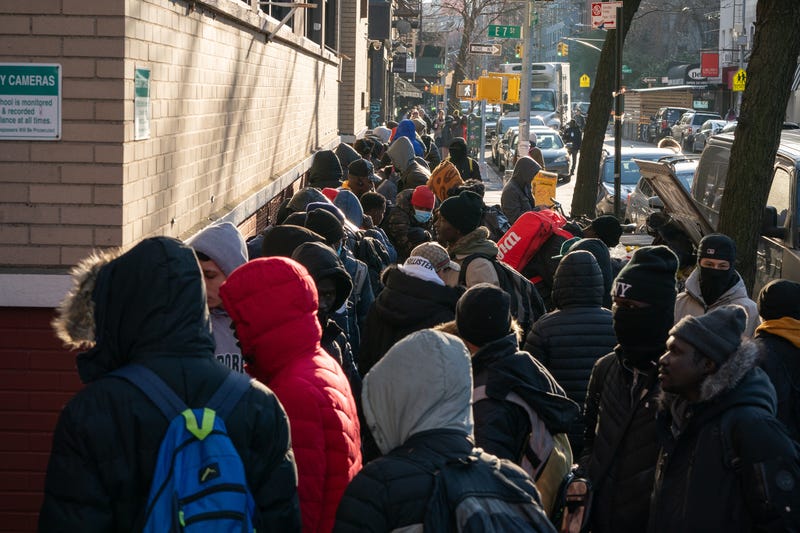
NEW YORK (BLOOMBERG) -- Governor Kathy Hochul won’t provide any new funding to New York City to help manage its migrant crisis, marking a significant shift after tens of thousands of asylum seekers strained the city’s budget requiring state help.
Hochul, who previously committed to covering roughly a third of the city’s costs associated with sheltering migrants two years ago, signaled the change in the state budget on Tuesday. The $252 billion spending plan is still subject to negotiation and must be approved by the legislature.
New York City continues to have access to $2.9 billion in unspent money previously allocated by the state as part of a $4.3 billion package. The restriction on new money comes as President Donald Trump unveiled broad plans to crack down on illegal immigration to the US through a flurry of executive orders. These include ending birthright citizenship, using troops for border enforcement and shutting down the CBP One App, which migrants used to make appointments with immigration agents to file asylum cases.
Hochul, a Democrat, has adopted a conciliatory tone toward Trump, who won a higher share of New York voters in the November presidential election than any Republican had in the state since 1988.
More than 230,000 migrants have arrived in New York City since April 2022, although the rate of new arrivals and the total population in city shelters has been dropping for a year. That’s after the city implemented time limits on shelter stays and the Biden Administration implemented policy changes that led to fewer people crossing the US southern border intending to seek asylum.
The city currently counts fewer than 50,000 migrants in its shelter system, down from a high of more than 69,000 people a year ago. Between July 2022 and December 2024, the city spent a total of $6.9 billion on migrant costs, and city budget documents estimate the city will spend another $6.9 billion over the next four fiscal years, an estimate that assumes the state will cover $2.7 billion of that cost.
A spokesman for New York City’s Office of Management and Budget didn’t immediately respond to a request for comment.
